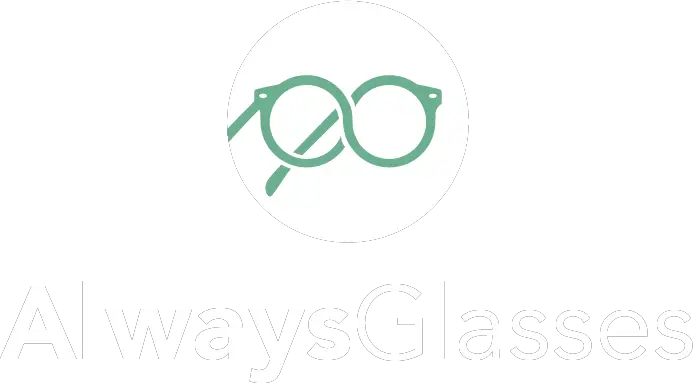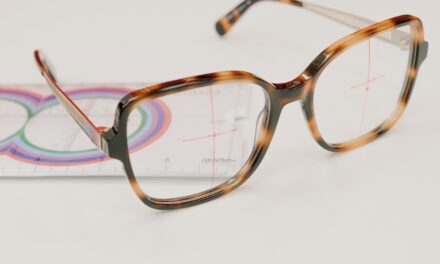If you are noticing that your glasses don’t work well for both reading and driving, then there’s a good chance that you are in the market for a pair of progressive lenses. Warby Parker certainly crafts a wide selection of stylish frames, but do you have the option of adding bifocals to these?
Warby Parker does not have bifocals, but it offers its customers a selection of frames with progressive lenses. These types of glasses are catered to those who would’ve traditionally sought out bifocals or trifocals instead of having to squint or buy multiple pairs of single vision glasses with differing prescriptions.
There are many advantages that wearers of progressive lenses can enjoy. You are invited to continue to learn more about what makes progressive lenses different and what Warby Parker has to offer its customers.
Does Warby Parker Make Bifocals?
Although Warby Parker does not currently offer bifocal or trifocal lenses, the good news is that they offer plenty of options for customers in need of both reading and distance. Progressive lenses are a lifesaver for these patients.
Progressive lenses may have higher up-front costs versus traditional glasses, but they also do offer wearers several distinct advantages, as you’ll see later in this section.
Are Progressive Lenses The Same As Bifocals? Trifocals?
Progressive lenses offer an upgrade to traditional bifocal and trifocal lenses. You may also hear progressives referred to as either multifocals or varifocals.
Here are the advantages of progressive lenses:
- 3-in-1: Progressives carry three prescriptions in a single pair of eyeglasses.
- Sharper vision: These glasses deliver clearer vision than traditional bifocal and trifocal lenses.
- Smoother transitions: The transition between reading, intermediate, and distance correction is seamless. There is no visible line bisecting the various lenses.
This is all made possible with the help of a special machine with lasers that shapes lenses to match the dimensions of your prescription. Advances in technology have allowed manufacturers to craft lenses with a graduated section where the power of the lens progresses smoothly throughout the lens, removing the need for the visible lines of separation seen in bifocals or trifocals.
Are Progressive Lenses Expensive At Warby Parker?
It’s important to remember that alternatives may well cost more in the long run versus the up-front costs of progressive lenses. This is because you may have to buy multiple pairs of glasses if you require bifocals or trifocals.
Progressive lenses start at $295 at Warby Parker. Adding features like blue-light-filtering and light-responsiveness will bring the cost up a tad, as will frame sizing. Single-vision glasses start at $95, so you would likely have to pay over $200 for two pairs of glasses, and then maintain and keep track of both pairs.
Are Progressive Lenses Worth It?
If you have a friend or family member with progressive lenses, you are encouraged to ask them how comfortable their glasses are. Warby Parker offers many different frame styles for progressives, which you can find here for men and here for women.
More and more patients have turned to progressive lenses, and Grand View Research expects this trend to continue. These types of lenses are preferred by people with myopia, hyperopia, astigmatism, and presbyopia.
Progressives offer wearers the opportunity to wear the same pair of glasses for driving, reading, and sitting in front of a computer. They eliminate the need for you to remove your glasses and squint or change out to a separate pair of glasses for each activity. The transition from distance correction to reading correction is also less distracting than that which occurs in bifocals and trifocals.
Are There Any Disadvantages To Progressive Lenses? Bifocals? Trifocals?
One potential disadvantage of these lenses is the amount of time it may take some wearers to adjust during transitions between distance, intermediate, and reading correction. Everybody has their personal preferences, and it may just be the case that progressive lenses are not for you.
Another potential disadvantage is the upfront cost of these types of glasses. Single-vision glasses can be half the cost and may suffice for some wearers. The upfront costs are thwarted, however, if the progressive lenses end up dramatically improving your quality of life and prevent you from having to purchase multiple pairs of single-vision glasses.
Are Warby Parker Progressive Lenses Right For You?
The good news is that Warby Parker offers its customers plenty of opportunities to test eyeglasses before committing to any one pair. You can pick out five pairs and have them mailed to your door for a 5-day free trial period.
A 5-day trial is more than enough time to get an authentic feel for what a pair of glasses will be like. There is usually an adjustment period for first-time wearers of progressive lenses, but Cal State- Fullerton says this will only last a few days in most cases.
If you’re looking for more of a personal touch, Warby Parker does have expert advisors and opticians on staff at its store locations. Here you can confirm your measurements and seek advice regarding which frame best suits your facial features.
Final Thoughts
Warby Parker does not offer traditional bifocals or trifocals, but the company does craft progressive lenses. These are an upgrade to traditional bifocals and trifocals for the many reasons discussed in the sections above, chief among them the ease of the transition between reading, intermediate, and distance correction.





